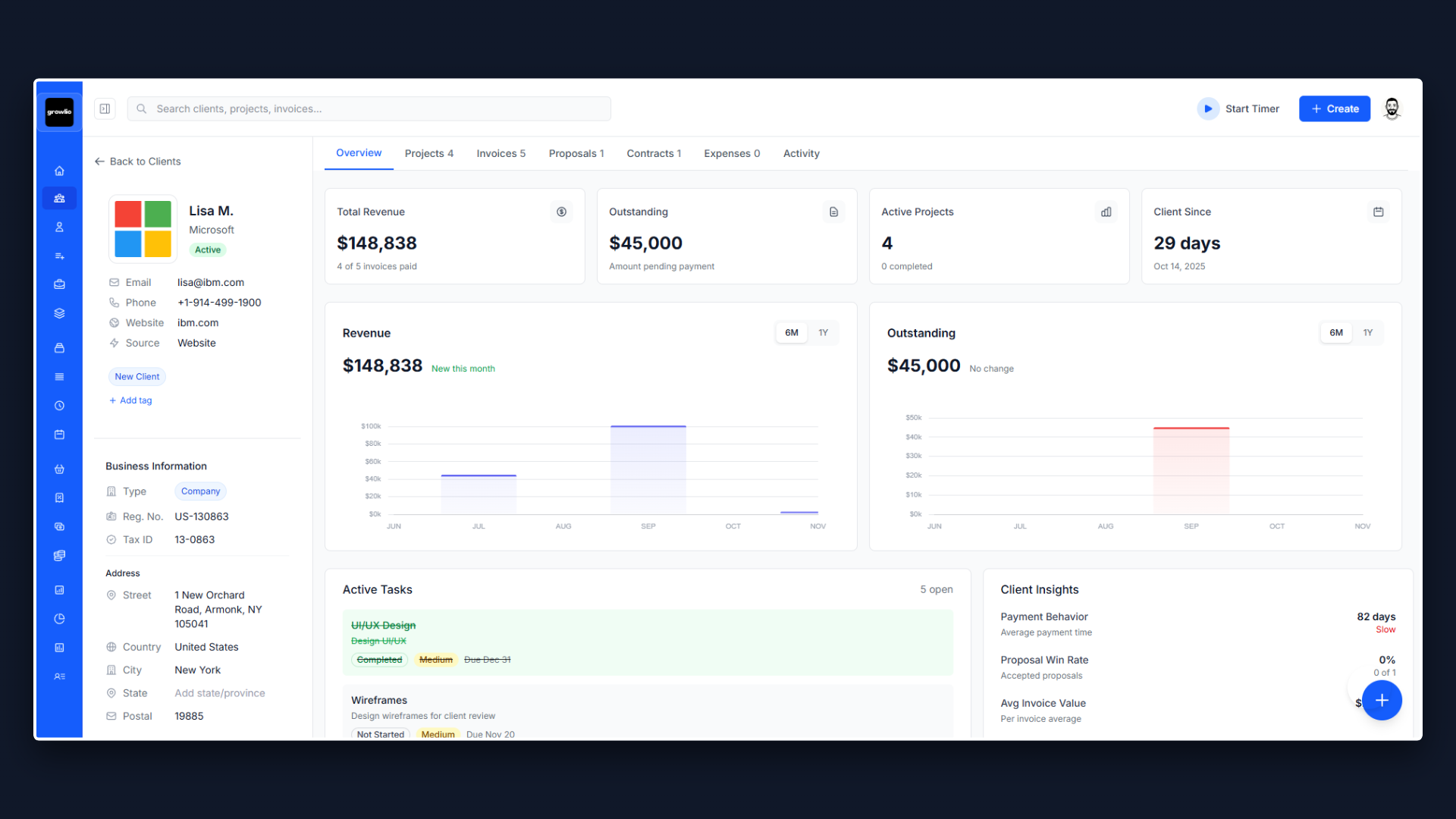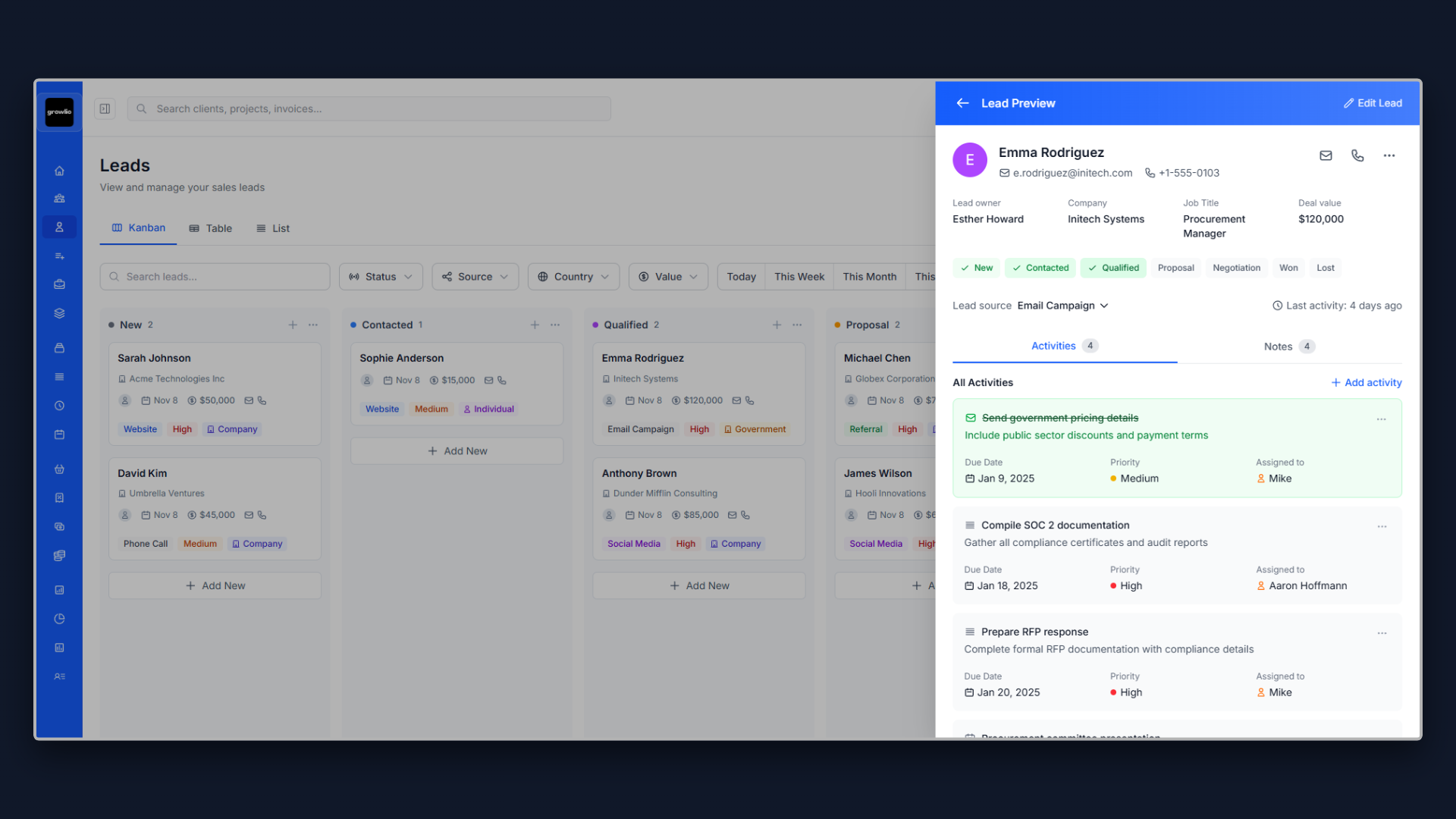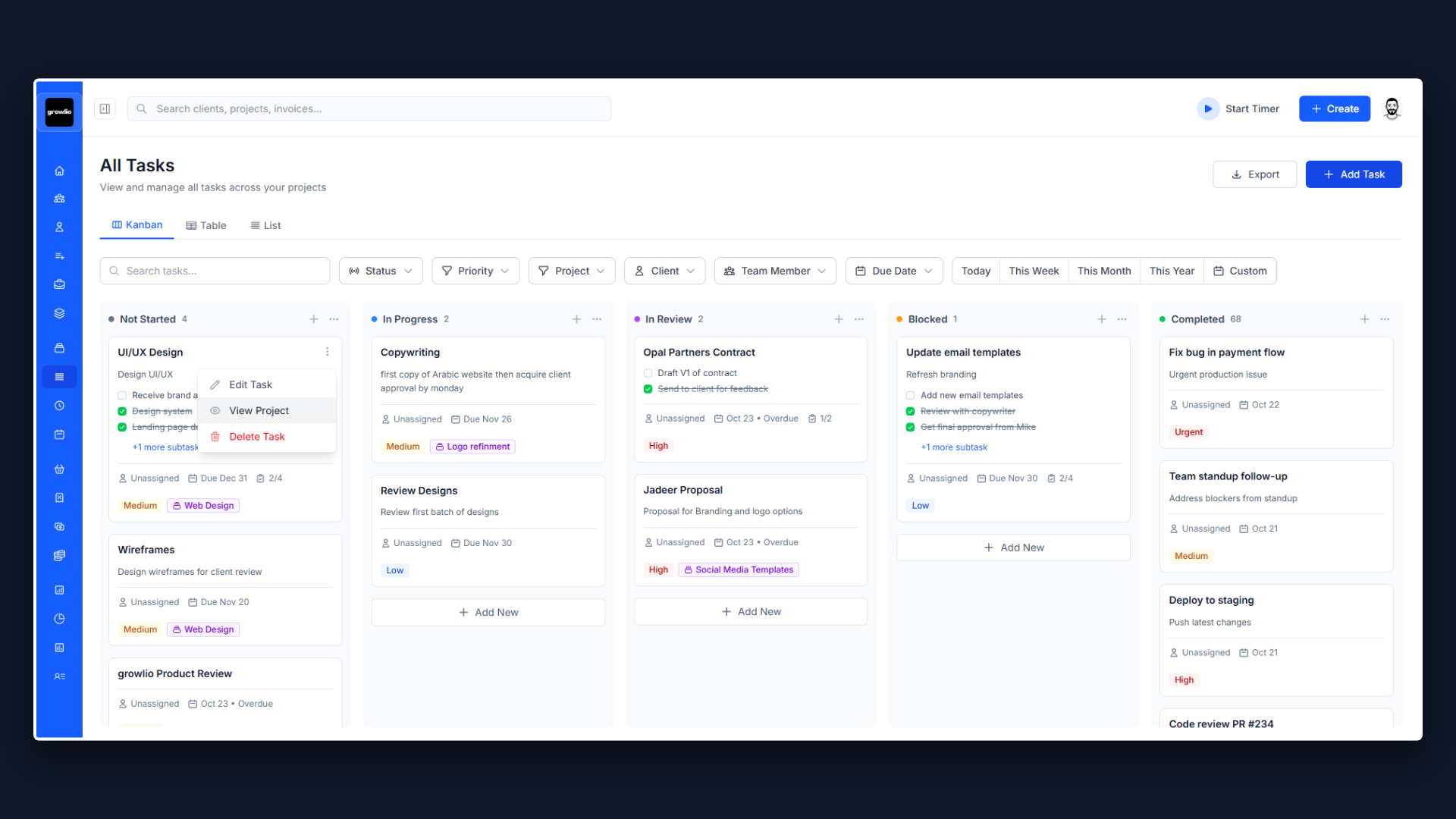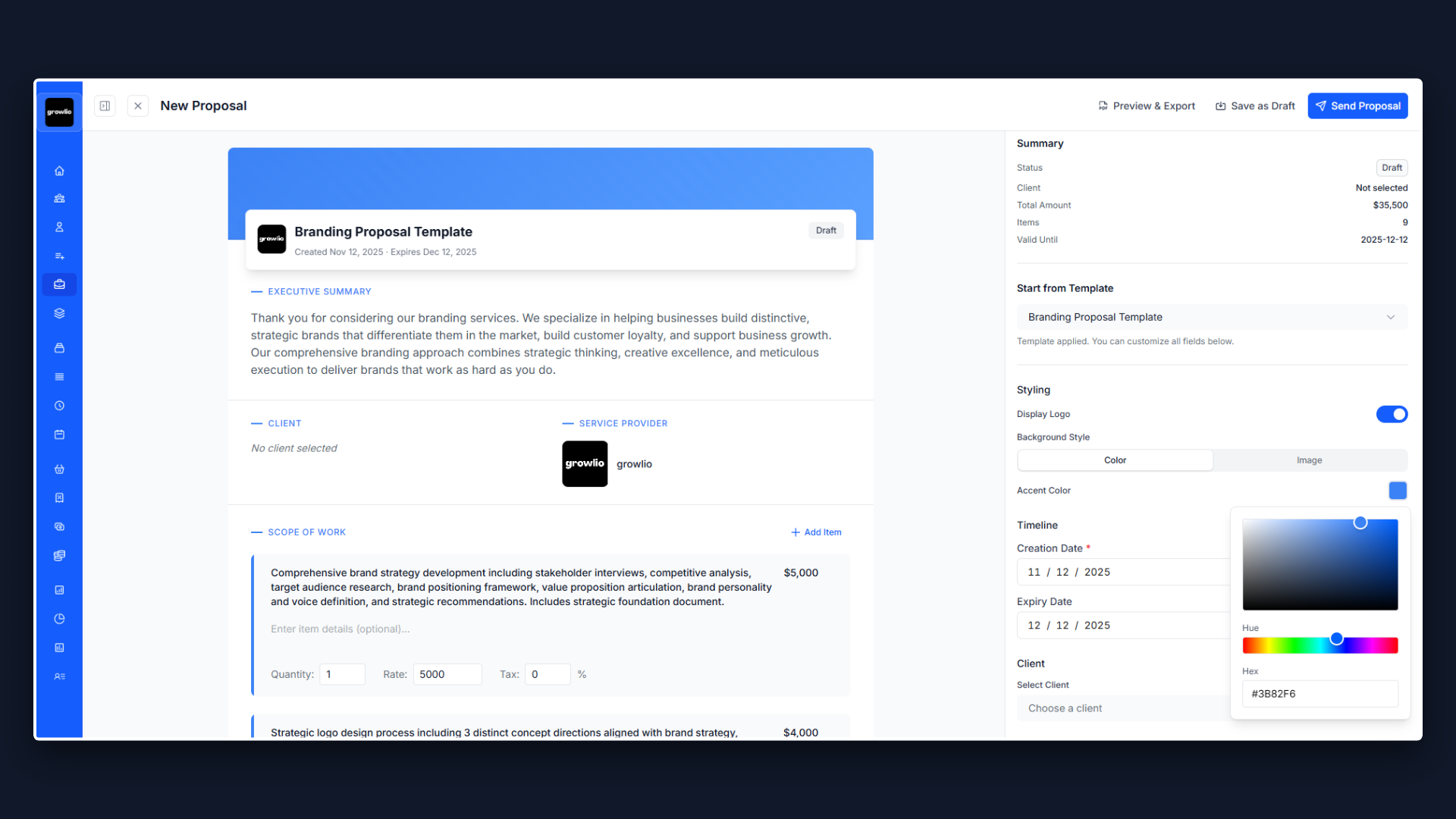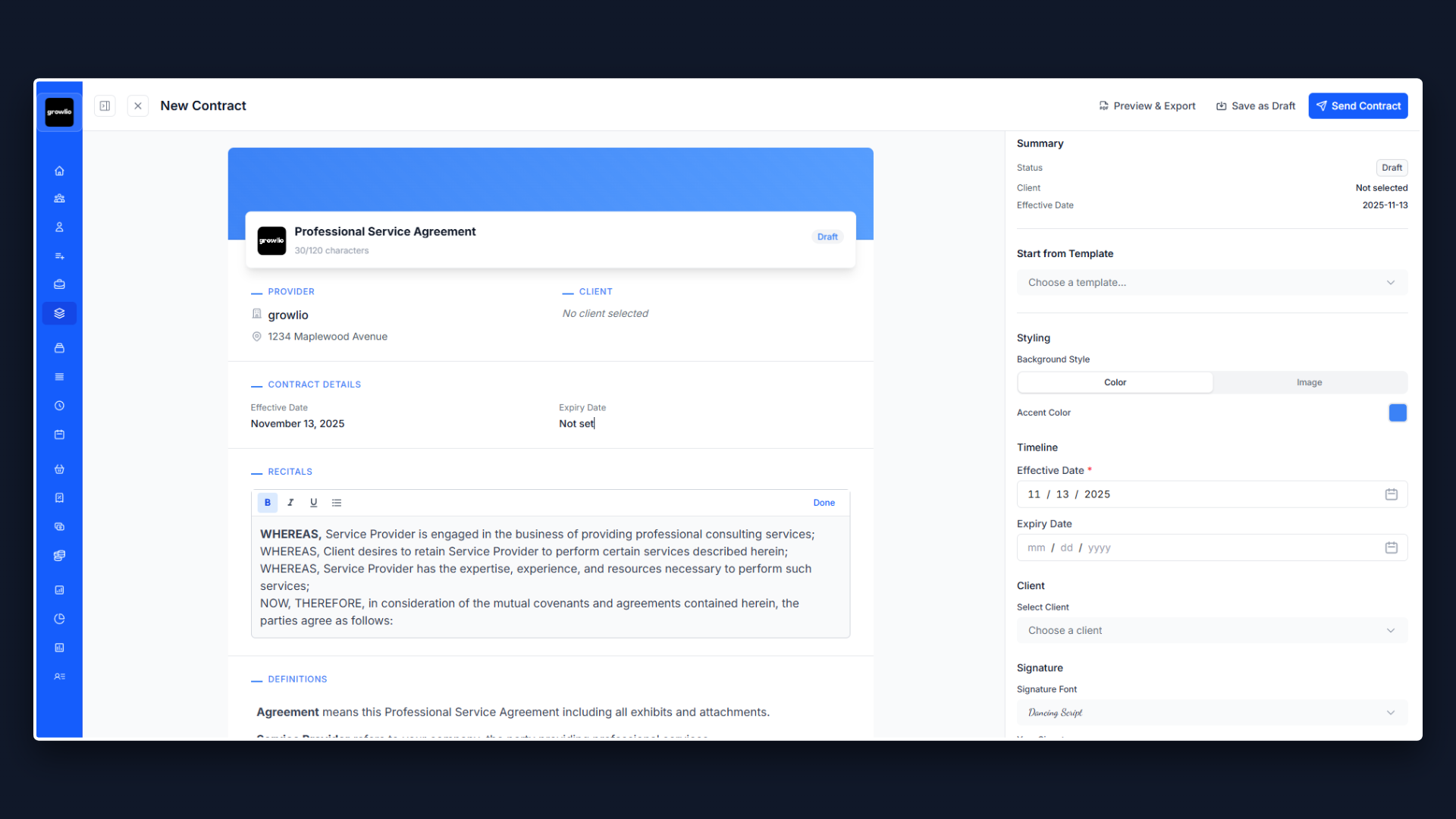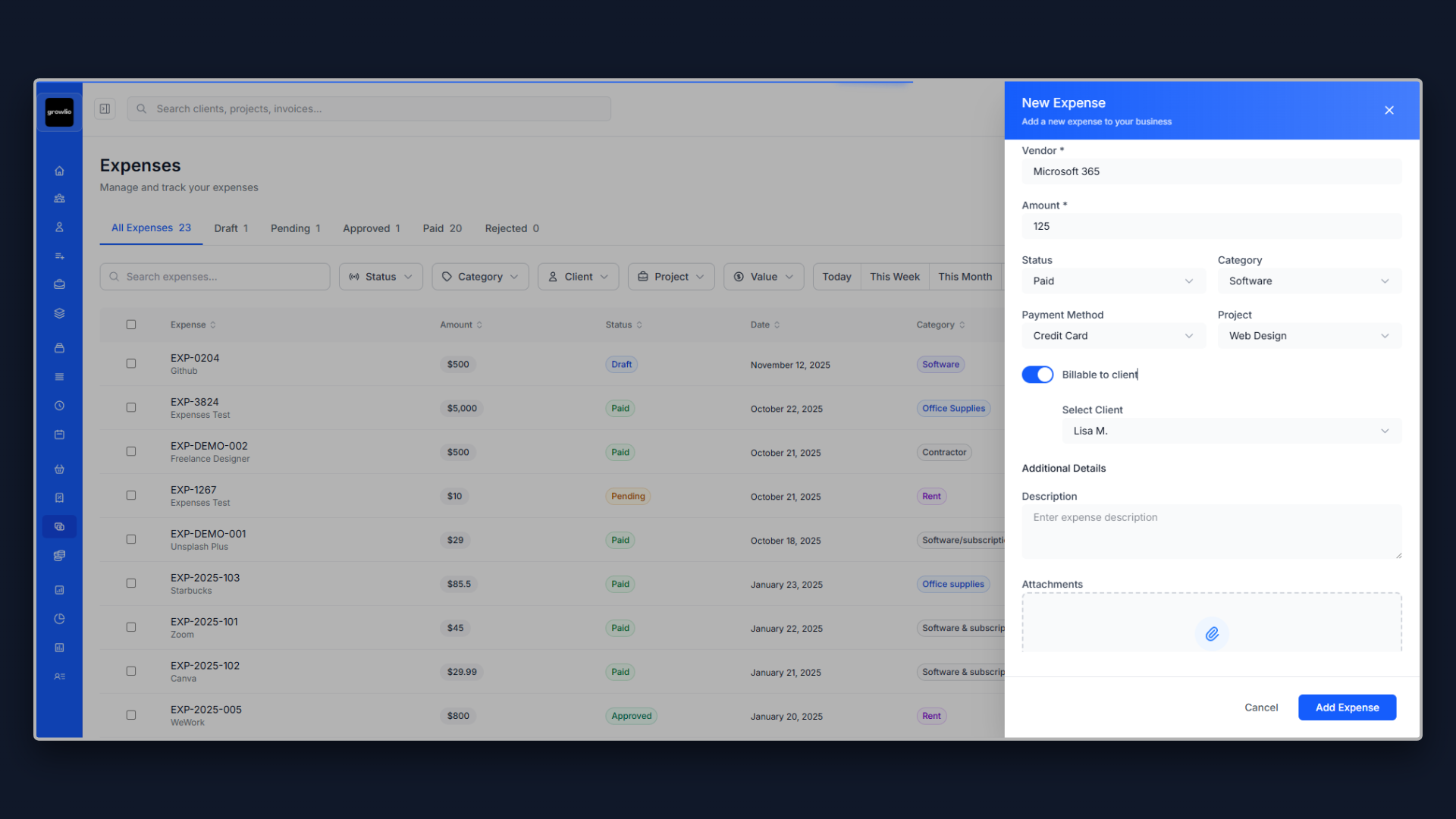Why Your PPC Proposal Is Your Most Important Sales Tool
The digital advertising industry will surpass $700 billion globally in 2025, with Google Ads and Facebook Ads dominating the landscape. Yet here's what most PPC consultants don't realize: your technical expertise in campaign management means nothing if your proposal doesn't convince clients to choose you.
Every day, businesses waste millions on poorly managed PPC campaigns. The average Google Ads account wastes 25% of its budget on irrelevant clicks, wrong audiences, or poorly optimized campaigns. Your prospects know this—they've likely been burned before. Your proposal isn't just about explaining what you'll do; it's about proving you won't waste their money.
The consultants winning the most lucrative PPC contracts aren't necessarily running the best campaigns—they're writing the best proposals. They understand that business owners don't care about quality scores and click-through rates until you've shown them how these metrics translate to revenue. Your proposal is where you make that translation crystal clear.
1. Lead With Money Wasted, Not Services Offered
The fatal mistake most PPC proposals make is starting with a services list: "We offer Google Ads management, display advertising, remarketing..." Your prospect doesn't care about your services yet. They care about their bleeding budget.
Start by showing them what's going wrong right now. If they're currently running ads, conduct a free audit and lead with the problems: "Our preliminary analysis of your Google Ads account reveals $3,200 in monthly wasted spend. Here's where it's going: 47% of your budget targets broad match keywords generating clicks from users with no purchase intent, 23% goes to display placements on irrelevant websites, 18% targets geographic locations where you don't do business, and 12% funds ads that send traffic to slow-loading landing pages with 68% bounce rates."
This immediately demonstrates you've done your homework and establishes urgency. If they're not currently running ads, show them what they're missing: "Your top three competitors are capturing 15,000 monthly clicks from Google Ads in your market. At an average 3% conversion rate, they're generating approximately 450 qualified leads per month that could be yours. Based on your industry's average customer lifetime value of $5,000, you're leaving $2.25 million in annual revenue on the table."
Now they're ready to hear your solution—because you've proven the cost of inaction is higher than your fees.
2. Include a Preliminary Campaign Audit
Nothing builds credibility faster than showing you've already analyzed their advertising landscape. Include a 1-2 page audit section highlighting critical issues and opportunities.
Account Structure Issues: Single ad group campaigns mixing unrelated keywords, no negative keyword lists (wasting budget on irrelevant searches), ad groups with 30+ keywords (preventing effective ad copy matching), lack of campaign segmentation by product/service line.
Keyword Strategy Gaps: Over-reliance on expensive broad match keywords, missing long-tail high-intent keywords, ignoring customer search query patterns, competing for your own brand name (unnecessarily), missing competitor conquesting opportunities.
Ad Copy Weaknesses: Generic ad copy not leveraging USPs, no A/B testing structure, missing ad extensions (losing 10-15% potential CTR), no responsive search ads (missing automation benefits), ads not matching landing page messaging.
Landing Page Problems: Slow load times (over 3 seconds loses 50% of visitors), generic pages not aligned to ad promises, no clear call-to-action, forms requiring too much information, missing trust signals (reviews, guarantees, security badges).
Conversion Tracking Deficiencies: No conversion tracking set up at all, tracking only form submissions (missing phone calls, chat, downloads), no enhanced conversion tracking, attribution model not matching customer journey.
This audit demonstrates expertise while creating urgency. Every problem you identify justifies your proposed solution and makes your services feel essential rather than optional.
3. Break Down Your PPC Strategy Into Clear Phases
PPC involves dozens of moving parts, but your proposal should simplify complexity into understandable phases. Break your strategy into a clear roadmap.
Phase 1: Foundation & Setup (Week 1-2)
Complete account audit and restructuring, comprehensive keyword research and competitor analysis, proper campaign structure implementation, conversion tracking setup and verification, remarketing pixel installation, landing page analysis and recommendations.
Phase 2: Campaign Launch & Optimization (Week 3-6)
Campaign creation with strategic ad group segmentation, compelling ad copy development with A/B testing, negative keyword list implementation, bid strategy optimization, ad extension implementation (sitelinks, callouts, structured snippets), quality score improvement initiatives.
Phase 3: Scaling & Refinement (Month 2-3)
Expand high-performing keywords and campaigns, test new ad variations and messaging angles, optimize landing pages for conversion rate improvement, implement advanced bidding strategies, expand into additional campaign types (display, video, shopping), refine audience targeting and demographics.
Phase 4: Advanced Optimization (Month 4+)
Implement sophisticated audience segmentation, develop customer match and similar audiences, create advanced remarketing sequences, optimize for customer lifetime value, integrate with CRM for closed-loop reporting, continuous testing and innovation.
This phased approach makes PPC feel manageable and demonstrates you have a methodical process. It also helps justify ongoing management fees by showing the work involved at each stage.
4. Set Realistic Expectations About Timelines and Performance
The fastest way to lose a PPC client is overpromising results. Unlike SEO which takes months, PPC generates traffic immediately—but optimization takes time. Be honest about this.
Be explicit: "You'll start seeing traffic and conversions within 24-48 hours of campaign launch. However, meaningful optimization requires data. We need 30-50 conversions before making statistically significant adjustments. For most businesses, this means: Week 1-2: Campaign setup and launch, initial data collection. Month 1: Early optimization based on initial performance data, 20-40% of optimal performance. Month 2-3: Significant optimization as data matures, 60-80% of optimal performance. Month 4+: Fine-tuned campaigns operating at peak efficiency, 90-100%+ of optimal performance."
Provide realistic projections: "Based on your budget of $5,000/month and industry benchmarks, we project: Month 1: 400-500 clicks, 12-20 conversions, $250-$400 cost per acquisition. Month 3: 500-600 clicks (improved CTR), 20-30 conversions, $165-$250 cost per acquisition. Month 6: 600-750 clicks, 30-45 conversions, $110-$165 cost per acquisition."
These conservative projections do two things: they set achievable expectations (so you'll likely exceed them), and they demonstrate you understand the learning curve of PPC optimization. Clients appreciate honesty over hype.
5. Explain Your Keyword Research and Targeting Strategy
Many clients think PPC is simple: "Just bid on keywords related to my business." Use your proposal to demonstrate the strategic depth required for profitable campaigns.
Explain your keyword research process: analyzing customer search intent and journey stages, balancing search volume with competition and cost-per-click, identifying high-intent commercial keywords vs. informational queries, discovering long-tail keywords with better conversion rates, conducting competitor keyword analysis to find gaps, mapping keywords to specific landing pages and offers, organizing keywords into tightly themed ad groups.
Give specific examples: "Rather than broadly targeting 'accounting services' ($35 CPC, high competition, vague intent), we'll target specific high-intent phrases like 'small business tax accountant Denver' ($8 CPC, lower competition, clear local intent), 'QuickBooks certified accountant for construction' ($6 CPC, very specific, high conversion rate), 'year-end tax planning for S-corps' ($12 CPC, specific service, qualified searcher)."
This demonstrates strategic thinking and shows you're not just going to burn through their budget on expensive generic keywords. You're targeting qualified buyers at the right moment in their decision journey.
6. Address Landing Page Optimization and Conversion Rate
Many PPC consultants focus only on ads and forget that the landing page determines ROI. Address this in your proposal to differentiate yourself.
Explain your landing page approach: "Great ads drive clicks, but great landing pages drive conversions. We'll analyze and optimize your landing pages to ensure every click has the best chance of converting." Detail your landing page optimization process: message matching (ensuring ad promise matches landing page headline), speed optimization (under 2 seconds load time), mobile responsiveness and thumb-friendly design, clear singular call-to-action, minimal form fields (every field reduces conversions 10%), trust signals (testimonials, reviews, security badges, guarantees), compelling offer presentation, A/B testing framework for continuous improvement.
Provide an example: "Improving your landing page conversion rate from 2% to 4% has the same impact as doubling your ad budget—but costs far less. We'll conduct landing page audits and provide detailed optimization recommendations quarterly."
This shows you understand that PPC success isn't just about traffic—it's about profitable conversions. Clients appreciate this holistic approach.
7. Transparent Budget Allocation and Management
Budget anxiety is real for PPC clients. They're afraid you'll waste their money. Address this directly with complete transparency about how you'll allocate and manage their budget.
Break down the budget clearly: "Your $5,000 monthly budget allocation: $4,500 (90%) goes directly to ad spend on Google Ads platform, $500 (10%) covers our management fee for strategy, optimization, reporting, and consultation. We never take a percentage of ad spend—your full budget goes to driving results."
Explain your budget management philosophy: "We'll start conservatively while gathering data, allocate more budget to high-performing campaigns and reduce spend on underperformers, implement bid caps to prevent runaway costs, provide weekly budget pacing reports to ensure we're on track, recommend budget adjustments based on performance (you always approve changes), pause campaigns immediately if something isn't working."
Provide spending safeguards: "We implement daily budget limits to prevent overspending, set maximum CPC bid caps on expensive keywords, use automated rules to pause underperforming ads, provide real-time access to your ad accounts so you can monitor spending anytime, and send alerts if campaigns exceed target cost-per-acquisition by 25%."
This level of transparency and control alleviates budget anxiety and builds trust. Clients can see you're as concerned about their money as they are.
8. Include Case Studies With Specific ROI Metrics
Nothing sells PPC services like proven results. Include 2-3 brief case studies showing specific ROI improvements.
Format them with clear before/after metrics: Case Study 1: E-commerce Furniture Retailer
Challenge: High cost-per-acquisition ($280), poor ROAS (1.8:1), wasted budget on broad keywords.
Strategy: Restructured campaigns by product category, implemented shopping ads, developed remarketing sequences, optimized product feed.
Results: Reduced CPA to $95 (66% improvement), increased ROAS to 6.2:1 (244% improvement), grew monthly revenue from $45,000 to $186,000 in 5 months.
Case Study 2: B2B SaaS Company
Challenge: Low conversion rate (0.8%), long sales cycle, difficulty tracking ROI.
Strategy: Focused on bottom-funnel keywords, created specific landing pages for each solution, implemented lead scoring, set up closed-loop reporting with CRM.
Results: Increased conversion rate to 3.2% (300% improvement), reduced cost-per-qualified-lead from $420 to $145, attributed $1.2M in closed deals to PPC campaigns within 6 months.
If you're new and lack client results, reference: your own business's PPC performance, pro bono campaigns you've managed, personal projects or side businesses, or certification projects and simulations from Google Ads training.
Even one solid case study with real numbers makes your claims credible and your proposal compelling.
9. Clearly Define Deliverables, Reporting, and Communication
Clients need to know what they're getting for their investment. Be specific about deliverables and reporting.
Weekly Deliverables: Budget pacing report showing spend vs. target, quick wins implemented and tests launched, performance alerts for significant changes (good or bad).
Monthly Deliverables: Comprehensive performance report (impressions, clicks, CTR, conversions, CPA, ROAS), campaign-by-campaign breakdown with insights, new keyword and audience discoveries, A/B test results and learnings, optimization actions taken and planned, strategic recommendations for the following month, 30-minute review call to discuss performance and strategy.
Quarterly Deliverables: Deep-dive strategic analysis, competitive landscape updates, landing page optimization audit and recommendations, account health assessment, quarterly planning session for next phase.
Continuous Access: Real-time dashboard access to live campaign data, shared access to Google Ads account (you maintain ownership), response to questions within 24 hours on business days.
This clarity shows you're organized, accountable, and client-focused. Clients appreciate knowing exactly what to expect and when.
10. Make Next Steps Completely Frictionless
Don't lose the sale because you made it hard to say yes. End your proposal with crystal clear next steps and an easy path forward.
"Ready to stop wasting ad spend and start generating predictable ROI? Here's exactly what happens next: Step 1: Review this proposal and approve it by [specific date]. Step 2: Grant us access to your existing ad accounts (or we'll create new ones if starting fresh). Step 3: We'll schedule a 60-minute strategy kickoff call within 48 hours. Step 4: Campaigns launch within 7-10 business days. Step 5: You'll see your first performance report within 14 days of launch. Questions before you decide? Book a 15-minute call with me at [calendar link] or reply to this email. I'm here to help."
Include a simple approval section: "To accept this proposal and get started: Sign here: _______________ Date: _______________ Print name: _______________ Company: _______________"
The easier you make the decision, the faster clients move forward. Remove every possible obstacle between the proposal and the signed agreement.
Final Thoughts on PPC Proposals
Your PPC proposal is competing against every other investment your prospect could make. It needs to prove that your management will generate more profit than they'll spend. The consultants who win aren't always the best PPC experts—they're the ones who best demonstrate their value on paper before ever launching a campaign.
Customize every proposal. Reference their specific business, competitors, and market. Show audit findings that prove you've studied their situation. Demonstrate your methodology with clear phases. Set honest expectations about timelines and results. Prove your capabilities with case studies. And make saying yes effortless.
Remember: a winning PPC proposal proves you understand their business and current advertising challenges, demonstrates you have a strategic, data-driven approach, shows evidence you can generate positive ROI, addresses their budget concerns with transparency, and makes the investment decision easy and risk-free.
Get these elements right, and you'll win clients even when competing against larger agencies or lower-priced competitors. Your proposal is your first campaign—make every word count.
